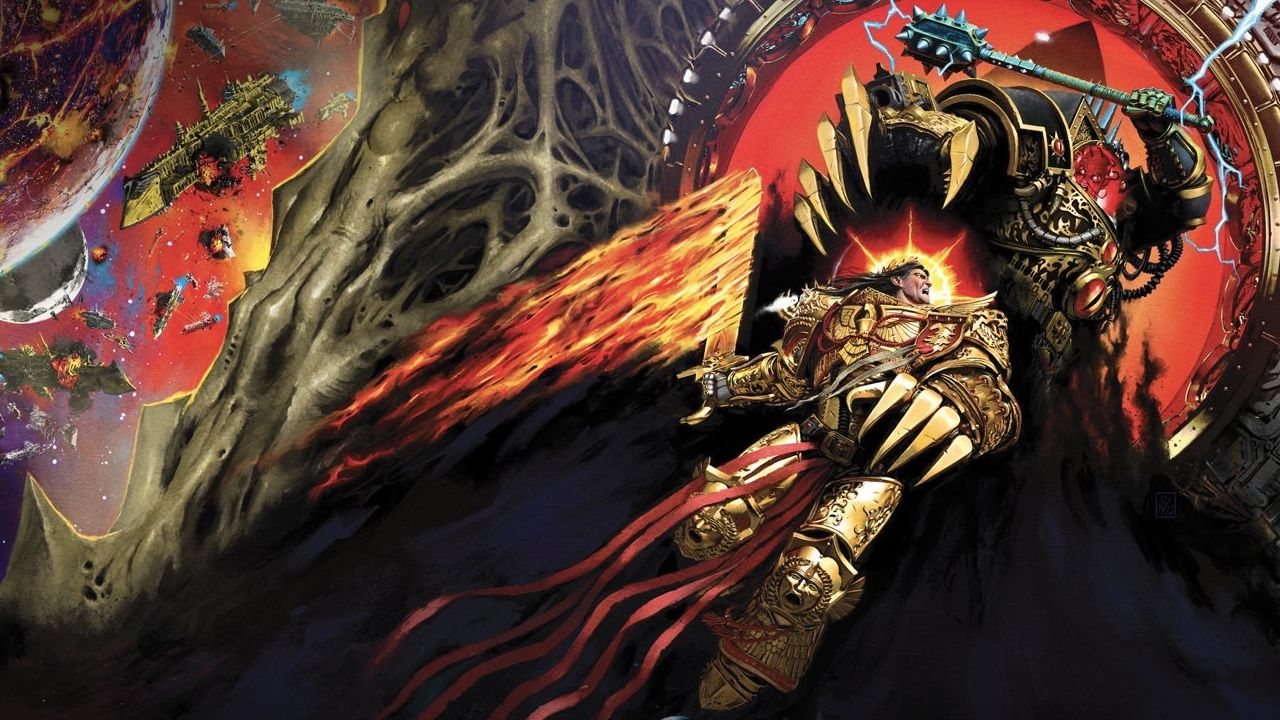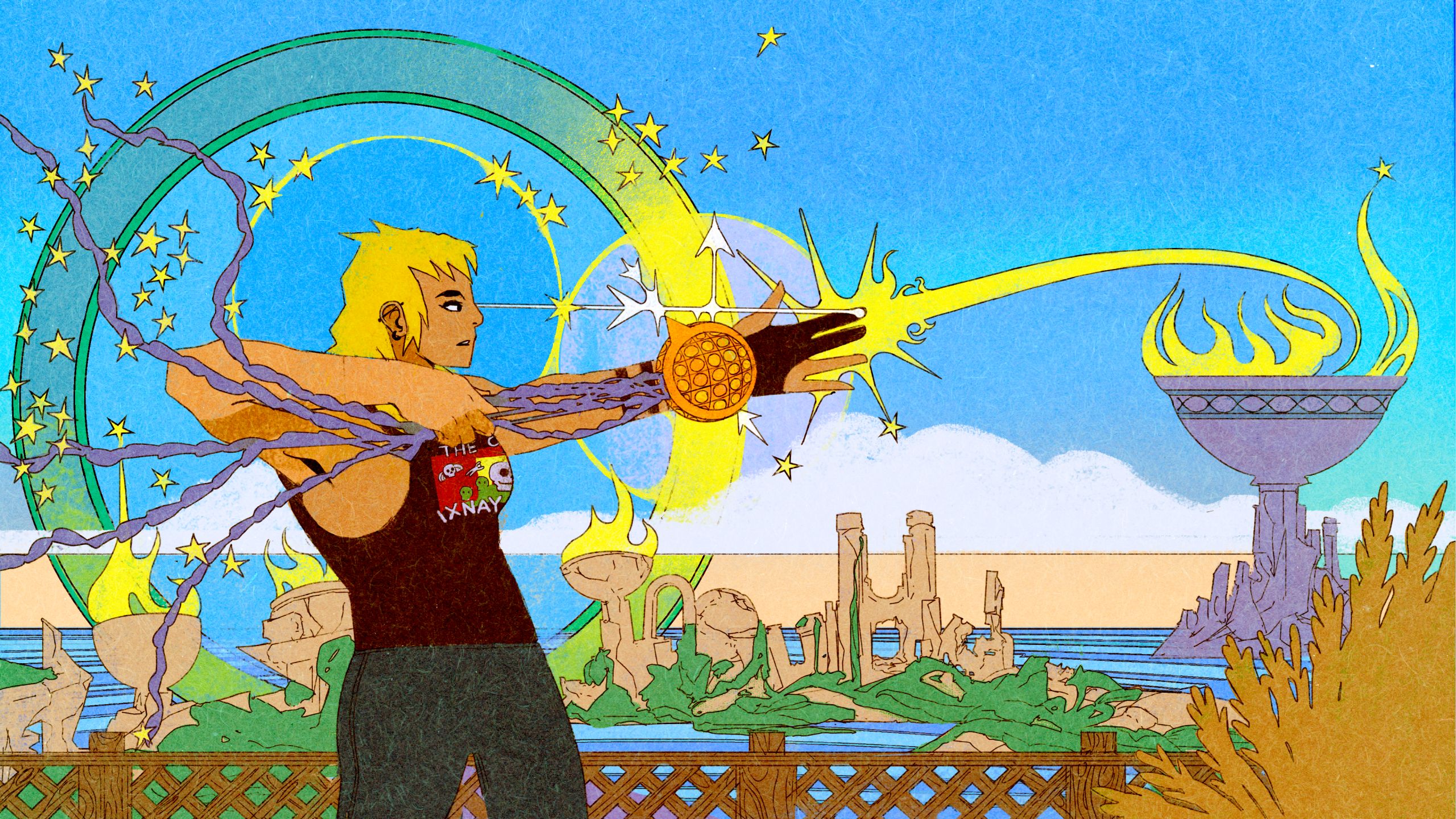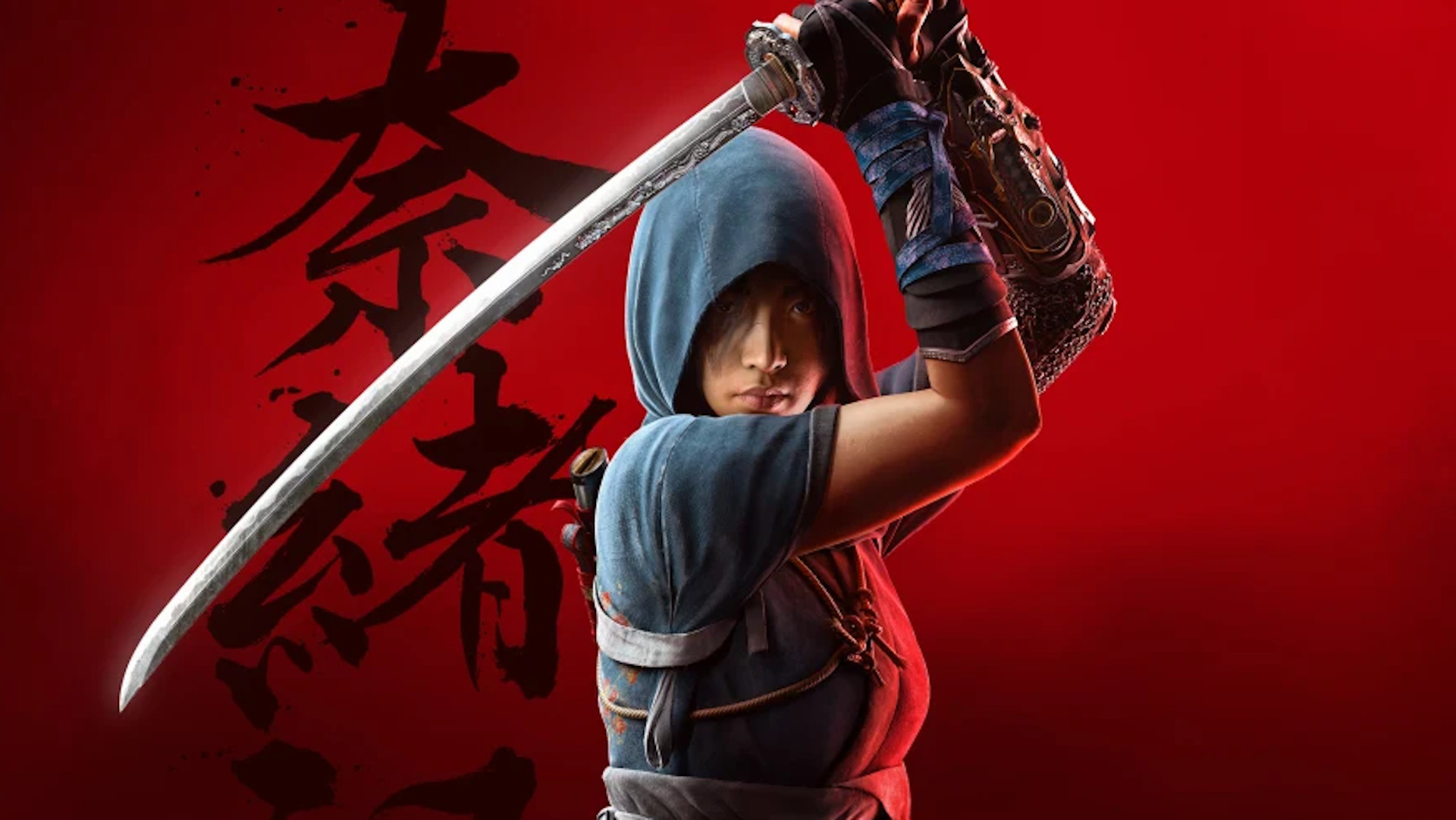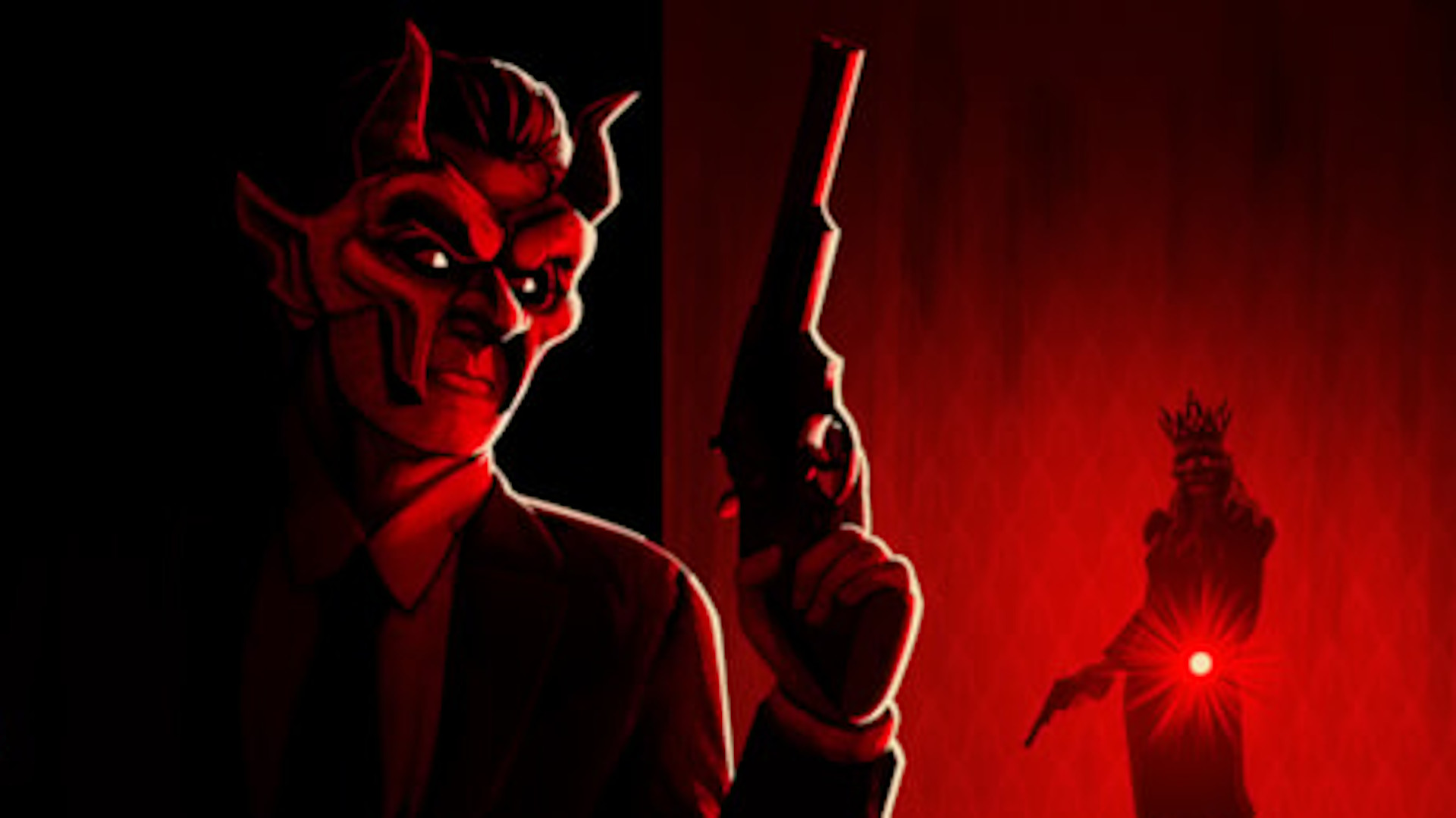For the foundational myth of the Warhammer 40,000 universe, the Horus Heresy had an extremely prosaic origin. The reason it exists, this massive fallen-paradise fairytale taking place 10,000 years in the setting’s past, is that Games Workshop couldn’t afford to put miniatures representing two different factions in a box back in 1988.
Rewind to the ’80s. Adeptus Titanicus is Warhammer 40,000 with mechs, presumably developed in an attempt to come at BattleTech’s crown. But a boxed set with 12 miniature Titans is expensive to produce, and to cut costs the two opposing forces of six giant robots have to be identical. A civil war is written into the setting’s history to explain why the Imperium was fighting a mirror match against palette-swapped versions of its own mechs, and that civil war is called the Horus Heresy.
The Realm of Chaos supplements, the first published the same year as Adeptus Titanicus, detailed the Horus Heresy in broad strokes. A two-page short story accompanied by a black-and-white art piece by Adrian Smith from the second volume depicted the climactic duel between Horus and the Emperor, and other tellings followed in art books and magazine articles. But it was mostly broad-strokes stuff. We didn’t get more of the specifics until the 21st century.
When the first novel in the series, Horus Rising by Dan Abnett, came out in 2006 it was an audaciously slow-and-steady, fine-grained look at events. Readers knew this was going to have to be a series on a bigger scale than they were used to. Maybe it would stretch to 10 or 12 volumes? Well, no. In the end there were 54 books with The Horus Heresy logo stamped on them, followed by another 10 called The Horus Heresy: Siege of Terra to cap it off.
To be fair those 54 Horus Heresy books aren’t all novels, with a substantial number being anthologies of extremely skippable short stories tangential to the main story, and we only get to 10 Siege of Terra books because the finale, The End and the Death, was so long it had to be released as three separate volumes. Still, whichever way you count it, and even if you ignore the comic book and audio dramas, the thing as a whole is an extraordinarily long piece of work. Now that I’ve finally finished the last book I suddenly have all this free time and no idea what to do with it.
Just kidding, I’m going to play even more videogames.
(Image credit: Games Workshop)
While a substantial number of writers made their mark on the series, The End and the Death is written by Dan Abnett just like Horus Rising was. Abnett’s one of the most popular Warhammer writers, but endings have been considered his weak spot. Too often they feel rushed, finishing without denouement or epilogue. You can’t say the same thing about The End and The Death, which has enough word count for four novels spread over its three volumes. Listening to the audio version, I got to a point where I was expecting it to wrap up and realized there were more than two hours left. It’s an extravaganza of endings, tying together threads from across the saga even as two of its characters tie knots in the red yarn they’ve been following through a Hellish psychoscape that spans time and space.
It also nods at long-lost elements of old lore from early 40K novels and supplements, reintroducing things like the Star Child who showed up in those Realm of Chaos supplements and has been largely ignored ever since, and referencing other fiction from beyond its own timeline. Phrases like “the reign of Chaos and old Night” from Paradise Lost have become as much a part of the Horus Heresy tapestry as “in the grim darkness of the far future there will be only war”, but The End and the Death ramps up the quotes and their obscurity as Chaos invades and reality falls apart. Abnett takes a moment in the afterword to call out one in particular, from a poem called Not for that City by Charlotte Mew. (It’s an essential afterword, though unfortunately not included in the otherwise outstanding audiobook read by Jonathan Keeble.)
(Image credit: John Blanche)
As for the action, the climax that was once a two-page short story now takes up a substantial chunk of the final volume, and is drawn out like a TV show based on an ongoing manga that’s running out of stories to adapt. Actually, given the way attacks are described as being too fast to see and the duel takes on a metaphysical form explained with tarot cards, anime’s not a bad comparison. I’m not saying Horus activates the Emperor’s trap card, but it’s close and that absolutely rules. If you weren’t here for superhuman men biffing each other across time, space, and causality in excruciating detail you’d have given up on the series long ago.
And though this version isn’t exactly the same as it was in previous tellings, it’s remarkable how much of the old lore remains. A contradiction in earlier versions has been who gets the job of bursting into the chamber to get in the way of the duel right before it finishes, which is handled here by letting multiple people be That Guy, one after the other, and explaining them as part of the Emperor’s scheme. He makes Horus think he’s throwing allies against him in desperation, when the final distraction is actually the Emperor in disguise as one of those minor allies, getting close enough to get his guard down. It wasn’t a plot hole, it was all just according to keikaku.
(Image credit: Games Workshop)
Warhammer 40,000 is all about maximalism, the idea that quantity has a quality all its own. It’s right there in the name, an audaciously big number. It asks: What if 2000 AD, but times 20? And so, while it’s a shame The Horus Heresy ended up being overstuffed with skippable books like Battle for the Abyss and Fulgrim (yeah, I said it), it’s fine to be impressed by the scale of the thing now it’s done and has ended so well. It’s not the place you should start if you want to get into reading 40K books—that’s still Lord of the Night by Simon Spurrier, conveniently being reprinted as I write this—but The Horus Heresy is an accomplishment for all the people involved in creating it and frankly anyone who got through the whole thing.
Let’s just have a little break before we rev up the engines on the next mega series please. Oh, what’s that? The return of the Old World is being accompanied by new novels set during the Age of Three Emperors? OK, let’s go.











